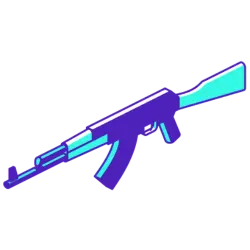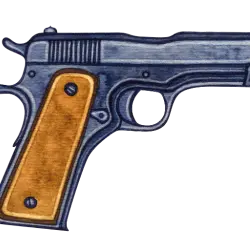If you live in Washington and are interested in starting a business in the firearms industry, you’ll need to apply for an FFL. Obtaining an FFL or Federal Firearms License is the first step in making your new business a reality.
In this article, we are going to cover the five simple steps you will need to take to make this dream a reality. By the end, you’ll know how to get an FFL in Washington, what an FFL license costs, and how to become an FFL dealer in Washington.
Getting a Washington FFL: An Introduction
Before we dive into how to get an FFL in Washington, we should first touch on what an FFL is. “FFL” stands for “federal firearms license” or licensee. It’s a license issued by the Bureau of Alcohol, Tobacco, Firearms and Explosives (ATF).[1]ATF. “ATF.” Accessed September 20, 2024. Holding a federal firearms license allows a person or business to engage in the manufacturing, sale, or interstate transfer of firearms or ammunition.
Along with the standard federal requirements, each state and local government can impose its own rules and regulations (above the federal base requirements) on the firearms industry.
Step 1: Meet All of the FFL Requirements

To become an FFL dealer in Washington, you will need to make sure you meet all requirements. As we mentioned, an FFL is a federal license. As such, the federal government (through ATF) sets the ground-level rules and regulations, which are standard across all 50 states. When getting an FFL in Washington, you must ensure you meet those requirements.
Next, you will need to consider any applicable state-level licensing and even local zoning laws to start your business. In this section, we will look at all three levels and how they pertain to getting an FFL in Washington.

Federal requirements
The ATF, or Bureau of Alcohol, Tobacco, Firearms, and Explosives, has set standard rules and regulations that individuals must qualify for in all 50 states.[2]ATF. “Rules and Regulations | Bureau of Alcohol, Tobacco, Firearms and Explosives.” Accessed September 20, 2024. These rules are mostly things you’d expect, like applicants must have a clean background, be over 21 years of age, and you must be a U.S. citizen or permanent resident to apply. To see the full list of federal FFL requirements, please review our FFL article mentioned in a previous paragraph.

State requirements
Although federal requirements are pretty straightforward, each state can impose its own rules and license restrictions beyond the federal bare minimum. In most states, there is a second layer of requirements that can be boiled down to two categories:
- Additional state licensing
- Business registration
WA business license
You will need to get a state business license in Washington. You would need a state business license regardless of your industry. Go on the Department of Revenue website for a step-by-step guide to registering your business in Washington.
State renewal requirements
While getting an FFL in Washington does not require additional licensing, there are some additional rules that you must abide by. First, there is no FFL renewal in the state of Washington. Instead, you must pay a $125 fee and reapply each year. The fee does not cover the costs of redoing your fingerprints and background checks alongside each application you submit. Be sure to give yourself plenty of time each year before the next application, as the new application typically takes 30-60 days to go through.
I-1639 requirements in Washington

Additionally, you may have to deal with an initiative named I-1639 (depending on your business model). I-1639 is an initiative that passed in Washington State in 2018.[3]ATG. “I-1639.” Accessed September 20, 2024. The initiative:
- Raised the legal age to buy a semi-automatic rifle from 18 to 21
- Creates enhanced background checks for firearm purchases
- Imposes new storage requirements for gun owners
I-1639 also added additional paperwork to FFL dealers in Washington. They are now also responsible for the following:
- Filing paperwork showing the buyer has taken a proper safety course
- Submitting paperwork to local law enforcement before the sale is finalized
- Holding any item labeled an “assault weapon” under the law for ten business days before releasing it to the buyer
Background check requirements
Lastly, state and local background checks are required in Washington, which, for many, feels redundant. In addition to the federal background check, Washington State requires an additional background check on all handguns, NFA guns, and semi-automatic rifles. This means that to complete a sale in Washington, the seller will complete additional paperwork, and the buyer will pay for training and two background checks.

Local and zoning requirements
Zoning in large cities and high-traffic areas can make it hard for business owners to start a firearms business in those locations. Before you start the application process, make sure you have a properly approved/zoned address for your business, especially if you are trying to run a home-based FFL.
Step 2: Select the Type of FFL you Need
There are nine types of federal firearms licenses to choose from. You will pick the type of FFL you need, depending on your business model. Before you choose, you will need to decide if you are going into the business of manufacturing, selling, or importing and what type of weapons or ammunition you will deal with. Once this is figured out, you will choose one of the nine options.

FFL license types
Review our earlier FFL article to see all nine types of FFLs and decide which is best for your new business. FFL license costs in Washington will vary depending on the license and your business model, but the initial application cost is set by the federal government.
Step 3: Complete an Online FFL Course
The third recommended step for opening a successful firearms business is completing an online FFL course. We always recommend doing your homework when entering a highly regulated industry like the firearms industry.
Completing an online FFL course, while not an official requirement, will help ensure you have mastered all rules and regulations set by both the local and federal governments. Although taking an online course is not mandatory, becoming an expert in the field will help ensure your business does not run into any legal trouble in the future.
Step 4: Apply for Your Washington FFL
Once you have a location for your new business, a solid business model, and have passed all federal and state-level regulations, it’s time to apply for your Washington FFL.
For this step, you will need to submit your application and pay the application fee. Once you’ve submitted your application, the first step ATF will take is to complete a background check on all relevant “responsible persons” attached to your business. This includes anyone who may be a decision-maker, such as an owner, partner, manager, etc.
Step 5: Have an Interview with a Representative from Your Regional ATF Office
The last step in getting your FFL in Washington is meeting with a local Industry Operations Investigator (IOI). The IOI will review your business plans and location and make sure you are knowledgeable about local and federal laws pertaining to your FFL.
Once the interview has been completed, the IOI will put together a report stating whether or not they recommend you get approval for your FFL.
FFL License Costs in Washington
FFL license costs in Washington are federally regulated. This means even though you live in Washington, the price of an FFL will be the same no matter what state you live in. To see a breakdown of all nine FFL types and their costs, review our earlier FFL article.
Getting a Federal Firearms License in Washington: Closing Thoughts
Getting a federal firearms license in the state of Washington is very achievable. Some of the local and state-level requirements may seem redundant, but they should not discourage you if you have a dream of owning a business in the firearms industry. Just follow the steps, and you will be a federal firearms licensee in no time.
Once you obtain your license, you can move forward with opening a merchant account and processing payments. A firearms business would need a high-risk merchant account, so it is important to work with a gun-friendly merchant service provider who can lead your business to success.
Tired of hearing “no”?
We help businesses that are normally turned away
Approval
Rating
FFL Washington FAQs
By now, you should have a good understanding of what getting an FFL in Washington looks like. However, some additional industry questions are frequently asked.
Do I need an FFL in Washington?
Yes, you need an FFL in Washington. You will need an FFL in any state if you want to engage in a business that is selling, manufacturing, inter-state transferring, or importing firearms or ammunition.
Who can apply for an FFL in Washington?
Anyone who can pass the federal requirements can apply for an FFL in Washington. The federal government requires an individual to be 21 years of age, have a clean background, and you must be a U.S. citizen or permanent resident to qualify. Make sure you check the complete list of rules and regulations if you’re interested in getting into the firearms business.
Do I need to register as a business to get a Washington FFL?
Yes, you will need to register your business in Washington. Every business, including Washington FFLs, must register with the state and local governments. It’s also important to note that if your business was registered in a different state previously, you will need to re-register it in Washington.
How can I find an FFL dealer in Washington?
To find an FFL dealer in Washington, you can use the Bureau of Alcohol, Tobacco, Firearms and Explosives (ATF) website. The website has a search tool that allows you to input your location and find nearby FFL dealers. They maintain a database of all licensed firearms dealers in the United States, so they should be able to help you find what you’re looking for. With a little effort, you should be able to find a reputable dealer in no time.
Can you have a home-based FFL in Washington?
Yes, you can have a home-based FFL in Washington. However, home-based FFLs are more challenging to get zoning and licensing for, as the idea of a firearms business in a residential area makes many people nervous. So make sure you discuss this with local authorities and are adequately zoned before starting a home-based FFL in Washington.
Can I apply for an FFL with a Washington gun trust?
You cannot apply for an FFL with a Washington gun trust. To apply for an FFL, you must be a person or a corporation.
Does the BATF&E have requirements for an FFL in Washington?
The BATF&E, or the ATF, does have requirements for gaining an FFL in Washington. The ATF is a federal agency that has made rules and regulations that all individuals must qualify for no matter what state they are applying for an FFL in.
Do I need to apply for an SOT for my Washington FFL?
Depending on the type of gun business you start, you may need to apply to become an SOT. Becoming an SOT, or a Special Occupational Taxpayer, is compulsory for those selling special types of firearms. These would include things like short-barrel shotguns, silencers, and machine guns. These extra requirements are due to the National Firearms Act.[4]ATF. “National Firearm Act.” Accessed September 20, 2024.
You can apply to become a Special Occupational Taxpayer after you have your FFL number.
How long does it take to get your FFL in Washington?
Getting all your documents together to prove compliance with federal, local, and state laws typically takes the most time when getting your FFL. However, once you have all your paperwork in order and have submitted your application, you should have your response (approval or denial) of your Washington FFL application in 60 days.
How can I transfer an FFL in Washington?
You cannot transfer an FFL in Washington to another person. Every individual must apply for their own FFL. If you sell your business or retire, the new owner will also need to do their own FFL application.
How much does an FFL transfer cost in Washington?
Transferring a weapon through an FFL in Washington will cost you anywhere from $20 to $200. The FFL transfer fee will be based on the company you choose to do the transfer with and the type of firearm you are transferring.
How hard is it to get an FFL in Washington?
Getting an FFL in Washington is very doable. Washington does not require extra licensing, which makes it easier than in some other states. However, Washington requires some additional paperwork and background checks. Overall, getting an FFL in Washington is very achievable.




